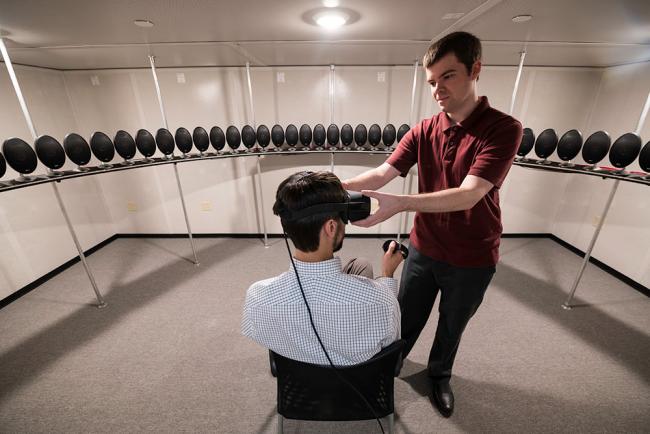
A $1.5 million grant from the National Science Foundation will provide additional impetus to a University of Rochester initiative applying augmented and virtual reality in health, education, product design, remote communication, entertainment, and other fields.
The grant will enable 62 doctoral students to be trained in the skills needed to advance AR/VR technologies and will also help them gain an appreciation for the broader cultural and societal implications of the technologies, says Mujdat Cetin, the principal investigator behind the grant. Other Rochester faculty supporting this initiative are Jannick Rolland, the Brian J. Thompson Professor of Optical Engineering; Michele Rucci, professor of brain and cognitive sciences; and Zhen Bai, assistant professor of computer science.
Read the full article on the University of Rochester’s Newscenter.

